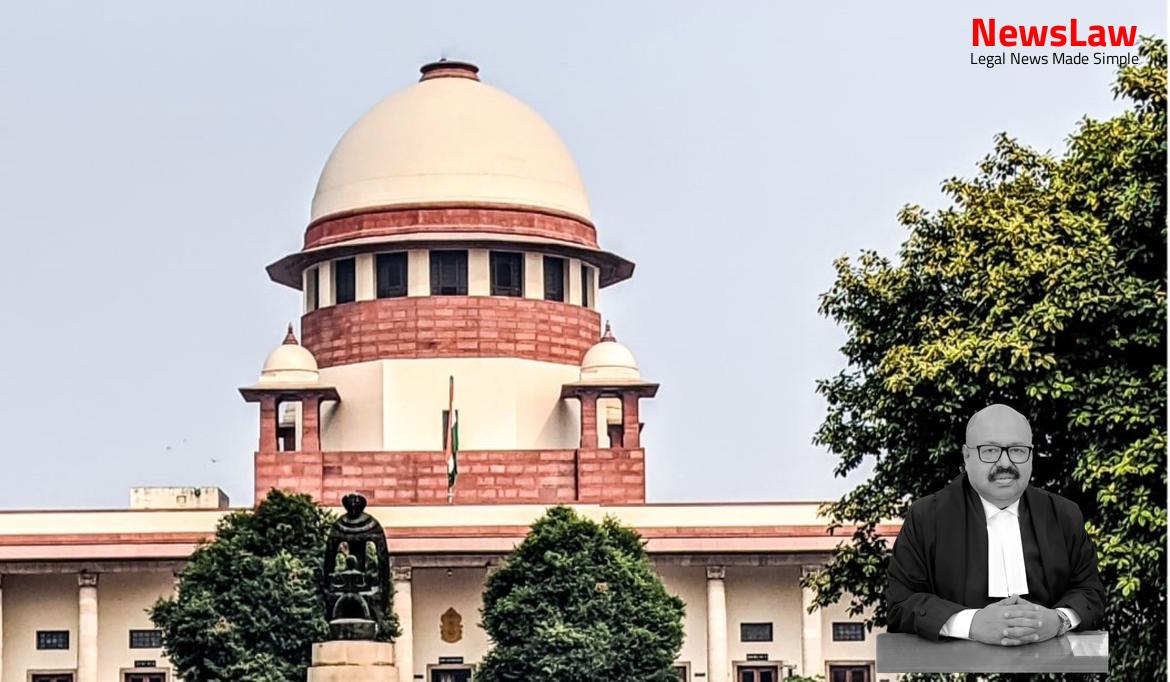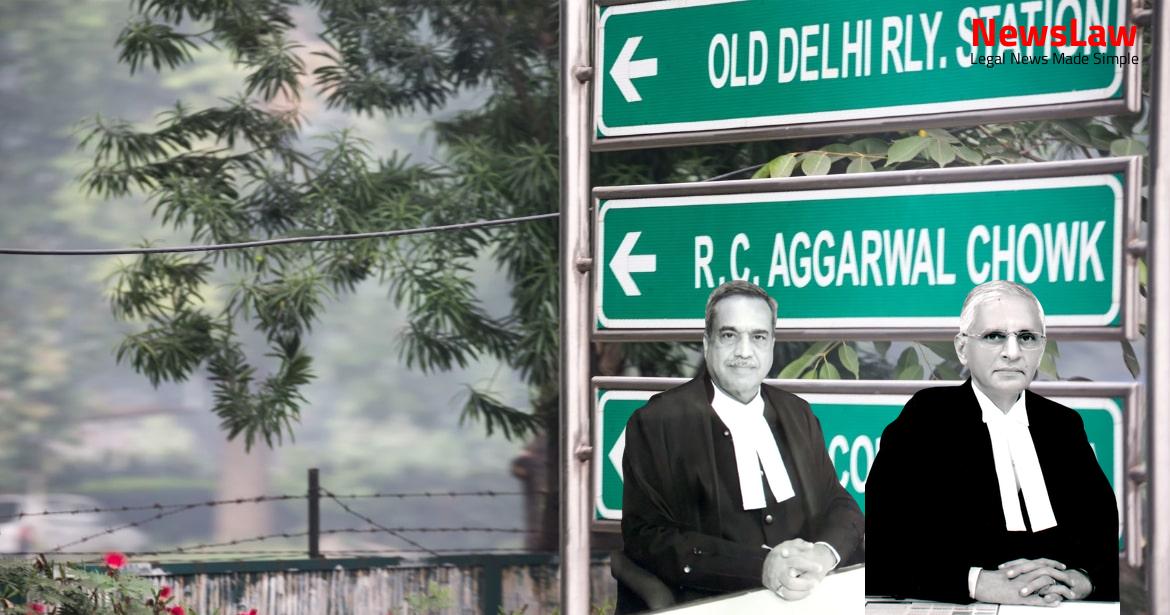In a recent legal case, the High Court delved into the nuances of extending time for the deposit of sale consideration in a specific performance suit. The court’s analysis focused on the discretion granted to the court under the Specific Relief Act, emphasizing the importance of justice and fairness in such matters. This case sheds light on the court’s authority to prevent manifest injustice and provide relief to parties involved in contractual disputes.
Facts
- The High Court of Judicature at Bombay, Nagpur Bench, allowed the Writ Petition filed by the first respondent-Trust.
- The High Court set aside the orders passed by the Trial Court granting extension of time for depositing the balance of the sale consideration.
- Appellant filed a suit for specific performance of an agreement dated 20.09.2002 for the sale of agricultural land.
- A compromise was reached between the parties during the suit proceedings.
- The Trial Court decreed the suit in terms of the compromise on 06.12.2010.
- Appellant sought permission to deposit the balance amount of Rs.1,47,500 as per the decree on 11.01.2011.
- First respondent executed a sale deed in favor of the appellant on 12.01.2011.
- Appellant filed an application for extension of time for payment of balance of sale consideration, which was allowed on 02.12.2015.
- First respondent filed for cancellation of the sale deed and sought recovery of possession after about three years from the deed execution.
- The High Court cancelled the sale deed through the writ petition filed by the first respondent.
Also Read: Presumption of Marriage in Long-term Cohabitation Cases
Analysis
- Delay of about five days in payment of balance amount resulted in application filed on 11.01.2011 for permission to deposit balance, which was allowed by the trial court on the same day.
- Time for payment of sale consideration can be extended even in a consent decree.
- Section 28 of the Specific Relief Act, 1963 provides for rescission of the contract for sale or lease of immovable property when specific performance has been decreed.
- The court has the discretion to extend time as justice requires, not ordinarily or solely upon request.
- The time for deposit agreed by parties became the court’s allowed time, granting it jurisdiction to extend time when necessary.
- Parties reached a compromise, seeking court order in agreement terms which was granted by the court.
- Section 28 allows for rescission of a contract for the sale or lease of immovable property if the purchaser or lessee fails to pay the purchase money within the fixed period.
- The vendor or lessor can apply for rescission in the same suit where specific performance was decreed.
- This provision aims to provide complete relief to both parties without the need for separate proceedings.
- The court retains control over the decree even after it is passed, allowing for rescission or extension of time to pay.
- The Court may enlarge the time in a compromise decree to prevent manifest injustice and give relief to the aggrieved party against a forfeiture clause.
- Enlarging time is granted in rare cases to prevent manifest injustice.
- The Court does not rewrite the contract between parties but may relieve against a forfeiture clause.
- When the contract of the parties merges in the court order, the court’s freedom to act for justice is not curtailed.
- The Trial Court granted an extension of time for depositing the balance of sale consideration, with cogent reasons.
- The High Court was unjustified in setting aside the Trial Court’s order and canceling the sale deed.
- Ultimately, the appeal was successful and allowed.
Also Read: Navigating Legal Challenges: Court’s Analysis on Limitation Act in IBC Proceedings
Decision
- The application seeking rescission of the contract was dismissed after nearly 3 years
- No costs were awarded in relation to the dismissal
- The appeal was allowed and the signed reportable order was upheld
- Leave was granted for further action
- Substitution was allowed in the case
- The High Court’s judgment and order from 30.01.2018 in W.P.NO.1637 of 2016 was set aside
- The Trial Court’s order from 11.01.2011 regarding the deposit of balance amount was reinstated
- Pending applications were disposed of as well
- The appellant deposited the balance amount on 11.01.2011 and the sale deed was executed on 12.01.2011
Also Read: Legal Analysis on Tariff Determination and Discoms’ Obligations
Case Title: KISHOR GHANSHYAMSA PARALIKAR (DEAD) Vs. BALAJI MANDIR SANSTHAN MANGRUL (NATH) (2022 INSC 538)
Case Number: C.A. No.-003794-003794 / 2022



